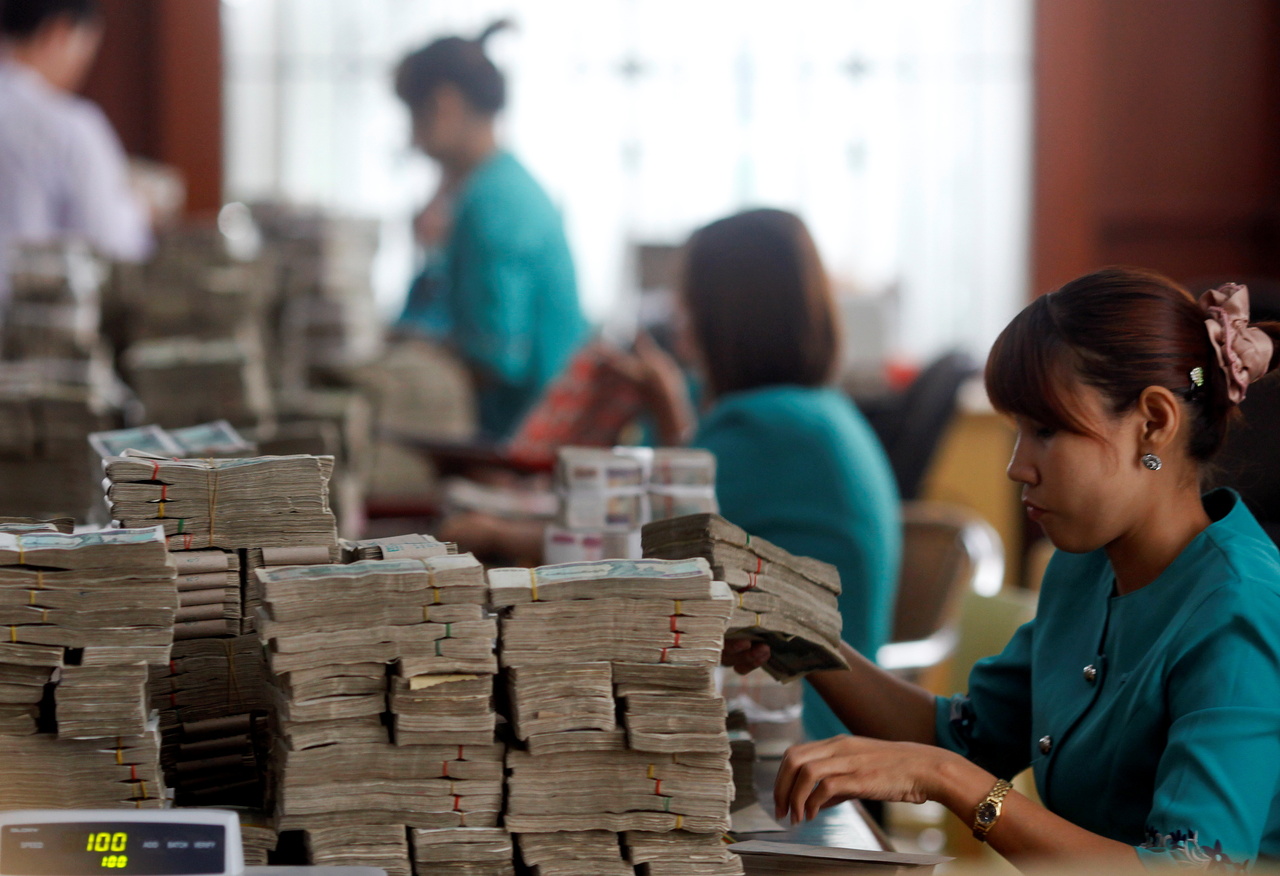Myanmar suspends foreign loan repayments amid dollar crunch
Sign up now: Get insights on Asia's fast-moving developments

The kyat has lost some 60 per cent of its street value since the coup.
PHOTO: REUTERS
Follow topic:
BANGKOK – Myanmar’s central bank has ordered borrowers to suspend repaying foreign loans in its latest measure to conserve foreign exchange reserves for the crisis-hit economy.
Central bank deputy governor Win Thaw said in a directive dated Wednesday (July13) that domestic borrowers who had taken loans abroad in cash or in kind must suspend payments of both interest and principal.
According to the statement, banks had to inform their customers to negotiate with their foreign lenders for new repayment schedules.
The Myanmar junta-controlled central bank also clawed back exemptions on foreign exchange restrictions that were earlier granted to some foreign companies.
In April, it ordered businesses to convert all foreign currency earnings to kyat within a day at a mandated rate, but later exempted investments approved by the Myanmar Investment Commission, those operating in special economic zones, and companies that were 10 per cent or more owned by foreign entities. The final category of companies had their exemptions revoked this week.
According to Bloomberg, companies in Myanmar have at least US$1.2 billion (S$1.7 billion) in outstanding US dollar-denominated loans. Among the borrowers is telecommunications provider Ooredoo Myanmar.
Myanmar’s junta is currently battling armed resistance triggered by the military coup in February last year, and the clashes have displaced more than 750,000 people across the country.
The latest banking restrictions “further add to the difficulties of doing business and investing here, and is just one more consequence of freezing the exchange rate when its real value is clearly 15 per cent less than the official rate”, Ms Vicky Bowman, director of the Myanmar Centre for Responsible Business, told The Straits Times.
The kyat, which has lost some 60 per cent of its street value since the coup, traded on informal markets this week at about 2,200 kyat to the US dollar – far lower than the official rate of 1,850.
To stop the outflow of foreign exchange, the junta has banned the import of what it calls non-essential goods. Carmaker Suzuki was forced to halt production at two factories in Myanmar this month after running out of material.
The World Bank estimates that Myanmar’s economy shrank by 18 per cent in the year ended September 2021 and is expected to stagnate this year.
The junta, however, said the economy experienced only a “single-digit contraction” and is poised for a “modest recovery”.
Faced with Western sanctions, the regime has leaned on China and Russia for support and investment.
Junta Foreign Minister Wunna Maung Lwin held talks with Chinese Foreign Minister Wang Yi earlier this month when the latter visited Myanmar for the Lancang-Mekong Cooperation foreign ministers’ meeting.
This week, junta chief Min Aung Hlaing made a rare visit out of the country to Russia, where he met executives from oil giant Tatneft.
According to state media, they discussed possible cooperation and investments in petroleum and natural gas.
Meanwhile, the World Bank warned in a policy note issued on July 8 that the political and economic uncertainties that followed the military coup had “uniquely destabilised” the financial system.
“Despite the lack of reliable data, it is possible to infer that a range of financial institutions in Myanmar have been severely impacted on the liquidity, asset quality and solvency fronts,” it wrote.
It also observed: “There is no indication that the current regime has an alternative programme to restore financial stability and make the financial system more inclusive.
“In fact, they have resorted to a series of ad hoc measures that can at best put out small fires, and that too with limited effectiveness, while significantly damaging trust in the financial system.”

